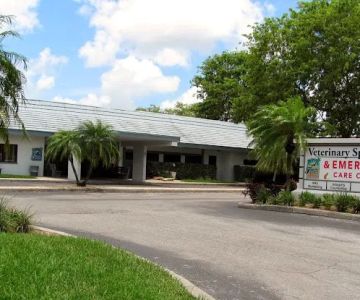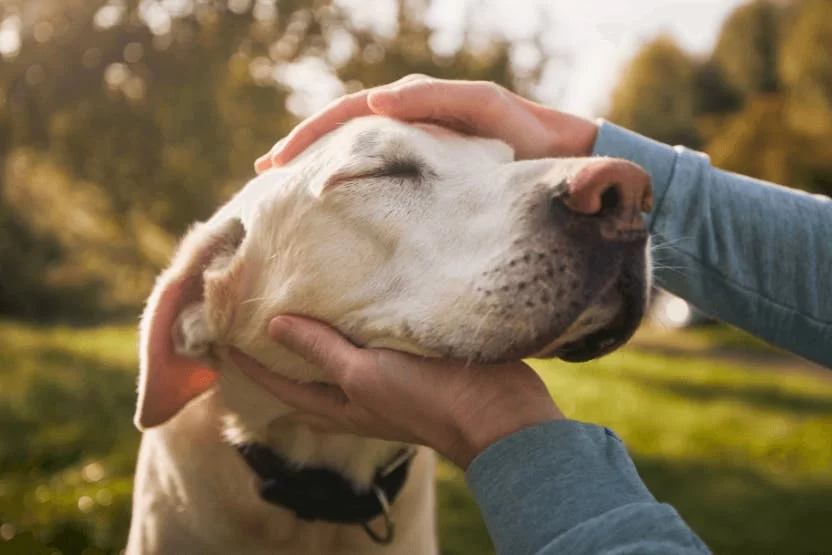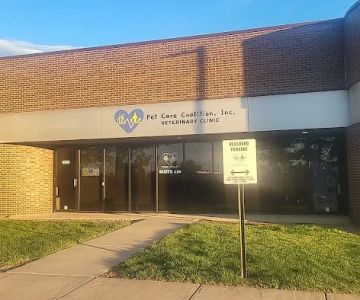- why-senior-dogs-need-special-care
- understanding-aging-in-dogs
- health-and-veterinary-checkups
- diet-and-nutrition-for-senior-dogs
- exercise-and-mental-stimulation
- creating-a-comfortable-living-environment
1. Why Senior Dogs Need Special Care
As dogs age, they experience many of the same changes humans do—slower movement, less energy, and more health concerns. Understanding how to care for a senior dog is essential to help them enjoy their golden years with as much comfort and happiness as possible. Senior dogs require a bit more attention than their younger counterparts, but with the right approach, they can live a fulfilling life. In fact, their loyalty and affection make the effort incredibly rewarding.

1501A S Belcher Rd, Largo, FL 33771, USA
See Details1.1 Age-Related Health Concerns
Senior dogs are more likely to develop various health issues, such as arthritis, dental disease, and vision or hearing loss. These conditions can affect their quality of life, but with the proper care, many dogs continue to live well into their later years. A regular check-up with your vet can help detect any early signs of illness.
1.2 The Emotional Bond
Older dogs also experience emotional changes, and they may become more reliant on their human companions for comfort and companionship. Creating a supportive, stress-free environment is essential for their mental well-being. Hidden Brook Veterinary has seen countless cases where the bond between pet and owner becomes even stronger as the dog ages, creating a more meaningful relationship as they navigate the later years together.
2. Understanding Aging in Dogs
Aging in dogs is a natural process, but the pace at which it happens depends on factors like breed, size, and overall health. Larger dogs tend to age more quickly than smaller ones, and some breeds are genetically predisposed to certain health conditions as they age. Understanding these changes can help you adjust your care routine to fit their needs.
2.1 Physical Changes in Senior Dogs
As dogs age, you may notice a decrease in their energy levels and mobility. Joint stiffness, weight gain, and muscle loss are common physical changes in senior dogs. Their coat may also change, becoming thinner or grayer as they grow older. However, these physical changes don’t necessarily mean your dog can’t still enjoy life—they just require adjustments in how you care for them.
2.2 Behavioral Changes
Senior dogs may also experience behavioral shifts. They might become more anxious, have trouble sleeping, or exhibit signs of confusion. These changes can be unsettling for both you and your dog, but patience, routine, and mental stimulation can help ease these challenges.
3. Health and Veterinary Checkups
One of the most important steps in learning how to care for a senior dog is ensuring they get regular health checkups. Senior dogs should visit the vet more frequently, usually every six months, to catch any potential health issues before they become serious.
3.1 Preventive Care and Early Detection
Routine veterinary visits allow for early detection of problems like heart disease, kidney issues, or tumors. Regular blood tests and screenings are often necessary for older dogs to monitor organ function and catch any abnormalities. Hidden Brook Veterinary provides comprehensive wellness exams for senior dogs to help identify and treat conditions early.
3.2 Vaccinations and Parasite Control
Even though senior dogs may not need as many vaccinations as puppies, they still require booster shots to protect them from diseases. Keeping them up-to-date on parasite prevention (like flea, tick, and heartworm treatments) is also vital. Consult your veterinarian for a tailored vaccination and parasite control schedule for your aging dog.
4. Diet and Nutrition for Senior Dogs
Diet plays a crucial role in maintaining the health of senior dogs. As dogs get older, their metabolism slows down, and their dietary needs change. Providing the right nutrition can help manage weight, joint health, and digestive issues.
4.1 Specialized Diets for Senior Dogs
Senior dogs often require food that’s lower in calories but higher in fiber to prevent obesity and maintain digestive health. Look for foods that include high-quality proteins and supplements like glucosamine and chondroitin to support joint health. At Hidden Brook Veterinary, we recommend a variety of high-quality senior dog foods that are formulated to meet these unique needs.
4.2 Supplements and Hydration
Consider adding supplements to your dog’s diet to help with aging-related issues. Omega-3 fatty acids, for example, can support brain health and reduce inflammation, while probiotics can aid digestion. Ensuring your senior dog has access to fresh water at all times is also critical, as older dogs are more prone to dehydration.
5. Exercise and Mental Stimulation
Although senior dogs may not be as active as they once were, they still need regular exercise and mental stimulation to keep them healthy. The right amount of activity helps with circulation, weight management, and joint health.
5.1 Adjusting Exercise to Your Dog’s Needs
Moderate exercise is important for senior dogs to keep them fit, but the intensity and duration should be adapted to their physical condition. Shorter, gentler walks and activities like swimming (if possible) are great ways to keep them moving without overexertion.
5.2 Mental Stimulation and Socialization
As dogs age, they may begin to slow down mentally, so it’s important to keep their minds sharp. Engage your dog in puzzle toys, training, and simple interactive games. Socialization is also key—allow your dog to interact with other dogs and people to maintain their confidence and happiness.
6. Creating a Comfortable Living Environment
One of the best things you can do for your senior dog is to make sure their living environment is comfortable and safe. Older dogs can struggle with mobility, so making simple changes can have a big impact.
6.1 Comfortable Sleeping Arrangements
Invest in a soft, orthopedic bed that provides support for your dog’s joints. Older dogs with arthritis or other joint problems will especially appreciate a bed that minimizes pressure on their body while they sleep.
6.2 Home Modifications
Making a few adjustments to your home can help your senior dog navigate more easily. If your dog has trouble climbing stairs, consider using ramps or dog steps to help them reach higher places. Non-slip rugs can help prevent slips on smooth surfaces, and keeping their food and water bowls at an easily accessible height will minimize strain.
With a little extra care and attention, your senior dog can continue to enjoy life to the fullest. For more expert advice on how to care for a senior dog, Hidden Brook Veterinary offers resources, products, and services to support your dog’s health and well-being throughout their senior years.











